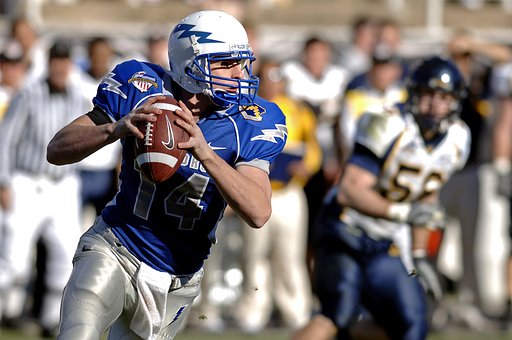Athletes and Nutrition: The Key to High Performance

Athletes and Nutrition: The Key to High Performance
Regarding sports and athletics, it's no secret that nutrition is critical to an athlete's performance. Athletes must ensure they eat the right foods in the right amounts to fuel their bodies for training and competition. In this article, we'll dive into the importance of nutrition for athletes, what foods are best for fueling their bodies, and how to create a meal plan to support optimal performance.
The Importance of Nutrition for Athletes
The right nutrition is essential for athletes because it can help them perform at their best. When athletes don't eat the right types of foods or don't eat enough of them, they can experience a range of negative effects, such as fatigue, poor performance, and even injury.
The food athletes consume can impact their energy levels, muscle strength, endurance, and overall health. Nutrition can also help with injury prevention and recovery, allowing athletes to return to training and competition more quickly after an injury.
Types of Foods Athletes Need
Protein
Protein is one of the most important nutrients for athletes. It helps build and repair muscles and can also aid in recovery after a workout. Good protein sources include lean meats like chicken, turkey, fish, beans, nuts, and dairy products.
Carbohydrates
Carbohydrates are another essential nutrient for athletes as they provide energy for the body. However, not all carbohydrates are created equal. Complex carbohydrates like whole grains, fruits, and vegetables are preferred over simple carbohydrates like candy and soda. Complex carbohydrates are broken down more slowly by the body, providing a more sustained release of energy.
Healthy Fats
Healthy fats, such as those found in nuts, seeds, avocados, and fatty fish, are also important for athletes. They help with the absorption of certain vitamins and minerals and provide a source of energy.
Water
Hydration is critical for athletes. Dehydration can lead to decreased performance, fatigue, and muscle cramps. Athletes should aim to drink plenty of water before, during, and after exercise to stay hydrated.
Creating a Meal Plan for Athletes
When creating a meal plan for athletes, it's important to ensure they consume enough calories to support their training and competition. Depending on the athlete's sport and activity level, they may need anywhere from 2,000 to 5,000 calories daily.
Athletes should aim to eat small, frequent meals throughout the day rather than three large meals. This helps keep their energy levels consistent and can prevent feelings of fatigue during training or competition.
A typical meal for an athlete should include a serving of protein, a serving of complex carbohydrates, and a serving of healthy fats. For example, a breakfast meal for an athlete might include scrambled eggs with whole-grain toast and avocado slices.
Athletes should also pay attention to their pre-and post-workout nutrition. Before a workout, athletes should consume a snack high in carbohydrates to provide energy for the workout. After a workout, athletes should consume a snack or meal high in protein to aid in muscle recovery.
Supplements for Athletes
While a well-balanced diet should provide most of the nutrients an athlete needs, some athletes may benefit from supplements. Common supplements for athletes include protein powder, B vitamins, and creatine.
However, athletes should be cautious when it comes to supplements. Some supplements may be contaminated or have negative side effects. Speaking with a healthcare professional or registered dietitian before starting any supplement regimen is important.
Conclusion
Nutrition plays a critical role in an athlete's performance. Athletes must ensure they eat the right foods in the right amounts to fuel their bodies for training and competition. A well-balanced diet that includes protein, complex carbohydrates, healthy fats, and hydration is essential for supporting an athlete's energy levels, muscle strength, endurance, overall health, injury prevention, and recovery. By creating a meal plan that provides enough calories and nutrients, athletes can perform at their best and achieve their goals in their respective sports. Consult a healthcare professional or registered dietitian before starting any new nutrition or supplement regimen. With the right nutrition, athletes can reach their full potential and succeed in their athletic pursuits.
